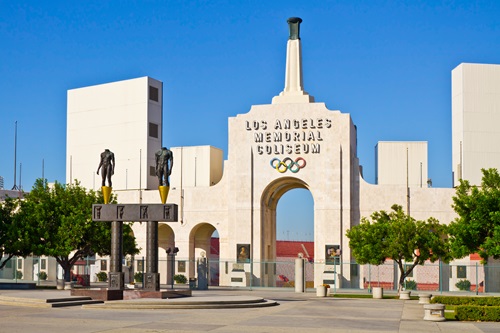
Photo © Blazej Lyjak | Dreamstime.com
Commuting to work via bicycle doesn’t seem to be picking up the pace — fewer than 1% of the American workforce did so, as of 2022 — but the makers of a free new navigation app designed for the casual rider hope to change that.
Cyclemate recently launched with the ambitious mission of doubling everyday bike rides in the United States ahead of the so-called “car-free” Summer Olympics in Los Angeles in 2028. Designed for people who want to swap short car trips for bike rides, Cyclemate combines cycling-first routing, ride tracking and real-world rewards to make daily cycling safer, easier and more fun, Cyclemate’s developers say. The app is especially geared toward Gen Z riders embracing healthier, more sustainable ways to move through their locales.
As the app’s website notes: “We apply local knowledge to our maps, removing dangerous streets, allowing truly safe cycling.”
“Most navigation apps treat cyclists like an afterthought,” British-born Tom Macmichael, who developed the app and is now based in Los Angeles, said in a statement. “Cyclemate is the first routing system truly designed for bikes — built to avoid dangerous streets and prioritize rider comfort.”

Cyclemate also is working with cities and employers to power commuter benefit programs and accelerate the shift toward active transportation.
“Cycling is good for the planet, great for your health and the best way to get from A to B in your neighborhood,” Macmichael says. “We want to make that choice the obvious one.”
As SDM reported last fall, one of three major transportation improvements planned in Los Angeles ahead of the 2028 Games is a plan to increase bike lanes around the city. The other two include connecting L.A.’s airport terminals to the city’s four rail systems and reassigning car lanes to buses to make way for 3,000 more buses (which are likely to be borrowed from other municipalities).
Being car-free means that Olympics spectators will be unable to drive to any venues, forcing them to use public transit, get dropped off, walk — or ride a bike.
The 2028 Olympics represent a “catalytic moment” in the city’s attempt to reduce its dependence on cars, Laura Raymond, director of ACT-LA (which advocates for housing and transit improvements), told the Los Angeles Times. “We need to make sure [the Olympics] is benefitting Los Angeles and not the other way around,” she said.
Meanwhile, other factors might play into a potential rise in cycling around the country — namely the popularity of e-bikes and an adverse result of tariffs. U.S. trade tariffs on imported products could have a “significant” impact, according to BikeBiz.com.
“Roughly 50% of e-bikes sold in the U.S. still originate in China, with another 27% from Taiwan, 20% from Europe, and only around 3% assembled domestically. As costs rise, brands are scrambling to rethink their strategies — but changing supply chains is no small task,” the cycle industry news source reports.
As of March, e-bike sales are consistently outpacing traditional bicycle sales, with a year-over-year growth rate of 15.6% since 2023, according to Astute Analytica, a global market research and advisory firm. The trend is particularly pronounced in urban centers, where e-bikes are increasingly seen as a viable alternative to cars for short to medium-distance trips.

